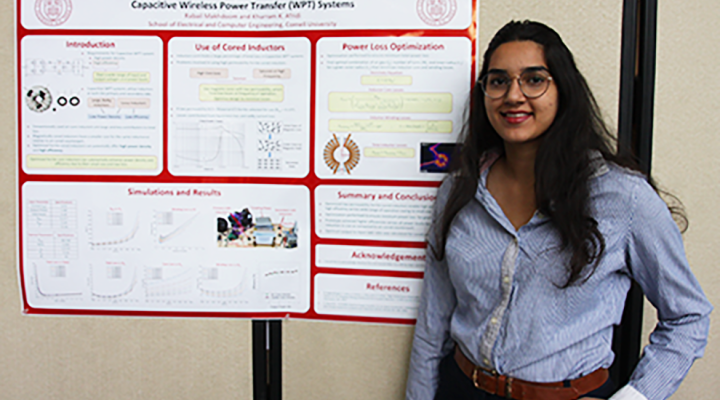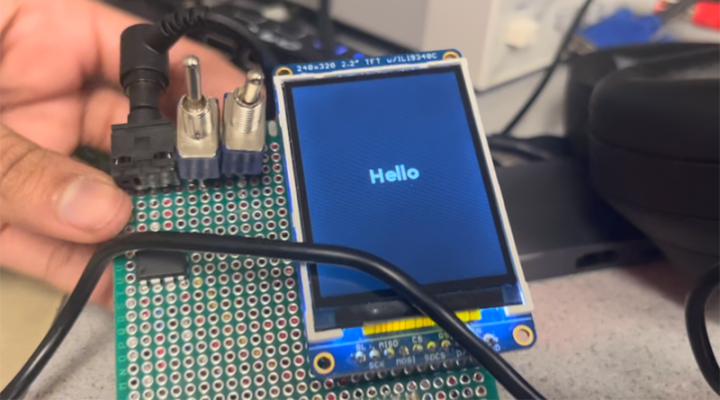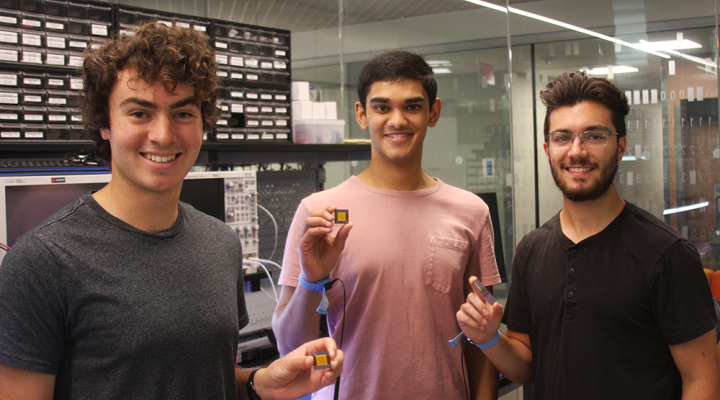Danielle Regis ’15 M.Eng. ‘16 jokingly calls herself an “engineer who talks too much.” In reality, she’s someone who uses her outstanding communication skills to shatter expectations around how engineers typically interact with others. A veteran software developer and manager of multimillion-dollar development contracts, Danielle brings a unique blend of technical expertise and business savvy to her work.
As director of product for LINGO, Danielle believes coding is a skill that anyone can learn, and thanks in large part to her boundless enthusiasm, LINGO lessons are both inspiring and educational—showing students that by developing STEM skills and utilizing the power of technology, they can literally change the world.
We asked Danielle to speak to us about her work and how her experience in Cornell ECE prepared her for the role.
Why is LINGO a great way for young people to get excited about STEM fields?
I have always had a deep desire to know how things worked and that’s what brought me to engineering. With LINGO, we show young people that the amazing devices they use every day are powered and built using coding and electronics. We introduce project-based lessons to show them that they can build cool things too.
LINGO inspires students to be motivated and curious about STEM by asking “Why?” while working through challenging material. We use a systems engineering approach to break exciting tech topics into components that feel approachable as introductory projects for any student.
 What are some key aspects of product design that you have to pay attention to when working to create LINGO project kits?
What are some key aspects of product design that you have to pay attention to when working to create LINGO project kits?
When creating LINGO we had to pay attention to all of the different users that will not only be purchasing the kits but using them. Our customer is often a parent, teacher, or education program, but the student is typically someone 13 or older who has often never seen this material before.
We had to build, redesign, and refine to unearth the simplest version of a project, then test it with target users to illuminate the most common challenges. We set learning objectives with each project and make every project relate to large concepts that students can easily visualize and contextualize.
It’s easy to forget what seemed hard when you were just starting out, and since we are designing for students that may have never interfaced with material like this ever before it is really important to our team to make it a positive experience.
Why did you choose Cornell and how did you decide to be an ECE major?
I chose Cornell because I knew that I wanted to be an engineer, but I also knew that I did not always want to be surrounded by engineers. I loved that at Cornell there was unbound excellence and passion all around me, in a broad spectrum of departments like Animal Science to Hotel Management.
I chose ECE because of (now retired) professor Bruce Land. I was in Phillips for my Math 1920 discussion and I had asked him to borrow a stapler for my homework. The only thing he asked for in exchange was one fact about myself. That random first encounter made me feel comfortable asking him for advice when I was looking to move out of environmental engineering. He sold me on the versatility of the ECE major and I convinced him to be my advisor.
What’s an example of a lesson, course, project or instructor in ECE that still resonates with you today and why?
I absolutely loved ECE 4760, Designing with Microcontrollers, with Bruce Land. In this course we got to exercise our creativity and actively learn how to solve problems and bring our imagination to life. It was enormously empowering and something I often thought about when building my first lesson for LINGO.
Beyond this class being one of the experiences I drew on for LINGO, it is also one of the first times I really felt confident and excited about what the material I was learning was capable of doing when intersected with my creativity. This confidence continued to grow from junior year through my M.Eng. program as I continued to enjoy exploring the scope of what ECE could impact.
Another amazing class during this time was about the intersection of ECE and art history. In this class we learned how to write algorithms to authenticate historical paintings based on their unique fiber counts and brush strokes. This class was important in my ECE experience since it showed me that I could find a way to have an impact in nearly any industry.
As a person with extensive experience in business and engineering, what role do you think entrepreneurship plays in how engineers make an impact in the world?
Entrepreneurship is how engineers get to choose how they impact the world and make a living from it. As an entrepreneur you get to work on problems that society might not yet view as as valuable, but are valuable to you. When the problem you are passionate about solving has a market fit, you get to reap the rewards for taking the risk of working on the problem.
Our society fuels and rewards engineers who take leap of faith and become entrepreneurs to work on problems that matter. It’s certainly not the right path for everyone due to the necessary appetite for risk, but it is certainly a path afforded to those who come through ECE because we are a community that knows how to build something from literally nothing.
What’s one major challenge you hope the next generation of electrical and computer engineers will help find solutions to?
Going back to my environmental engineering roots, the major challenge I hope the next generation can help find the solution to is the large energy consumption of data centers and electrical devices.
As electrical and computer engineers we have the capacity to be part of the problem as society becomes more digitized and the technologies we build being built and deployed, but we also have the opportunity to be a part of the solution.
Photos by Wesley Hicks, wehpictures.com




 What are some key aspects of product design that you have to pay attention to when working to create LINGO project kits?
What are some key aspects of product design that you have to pay attention to when working to create LINGO project kits?
